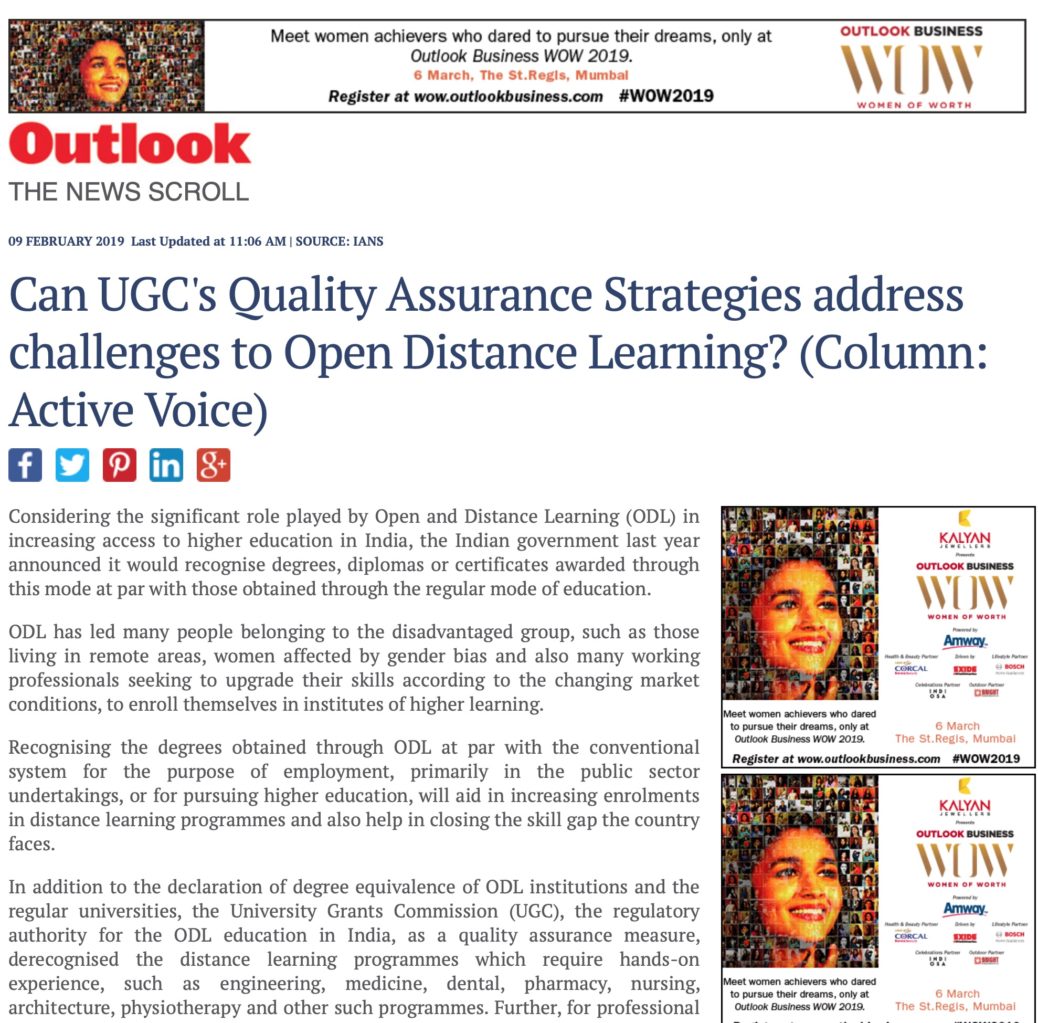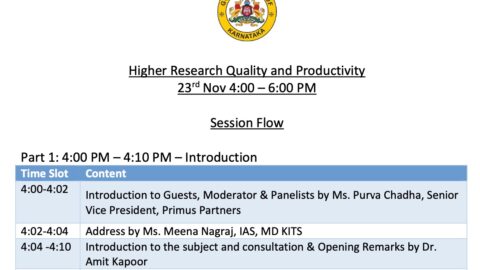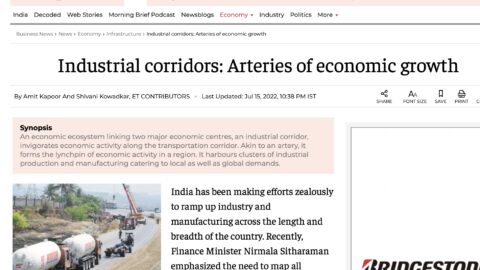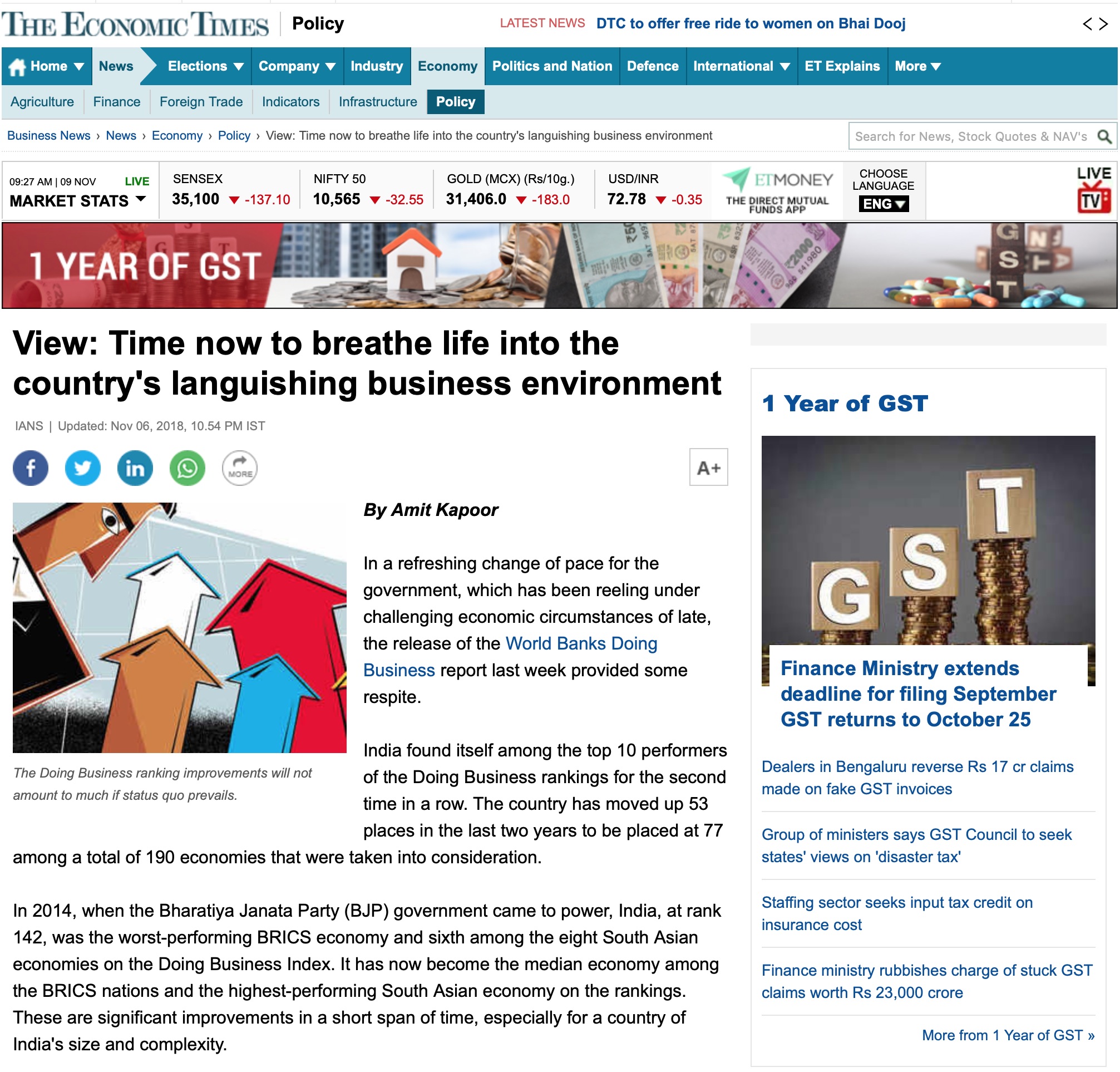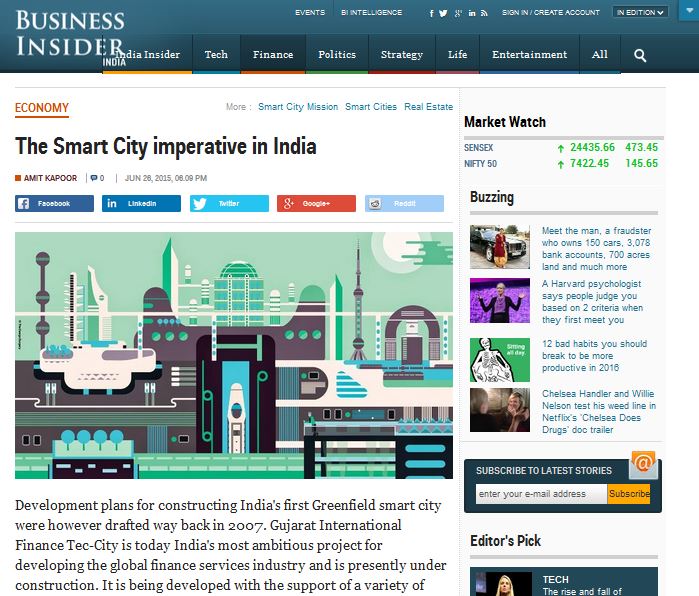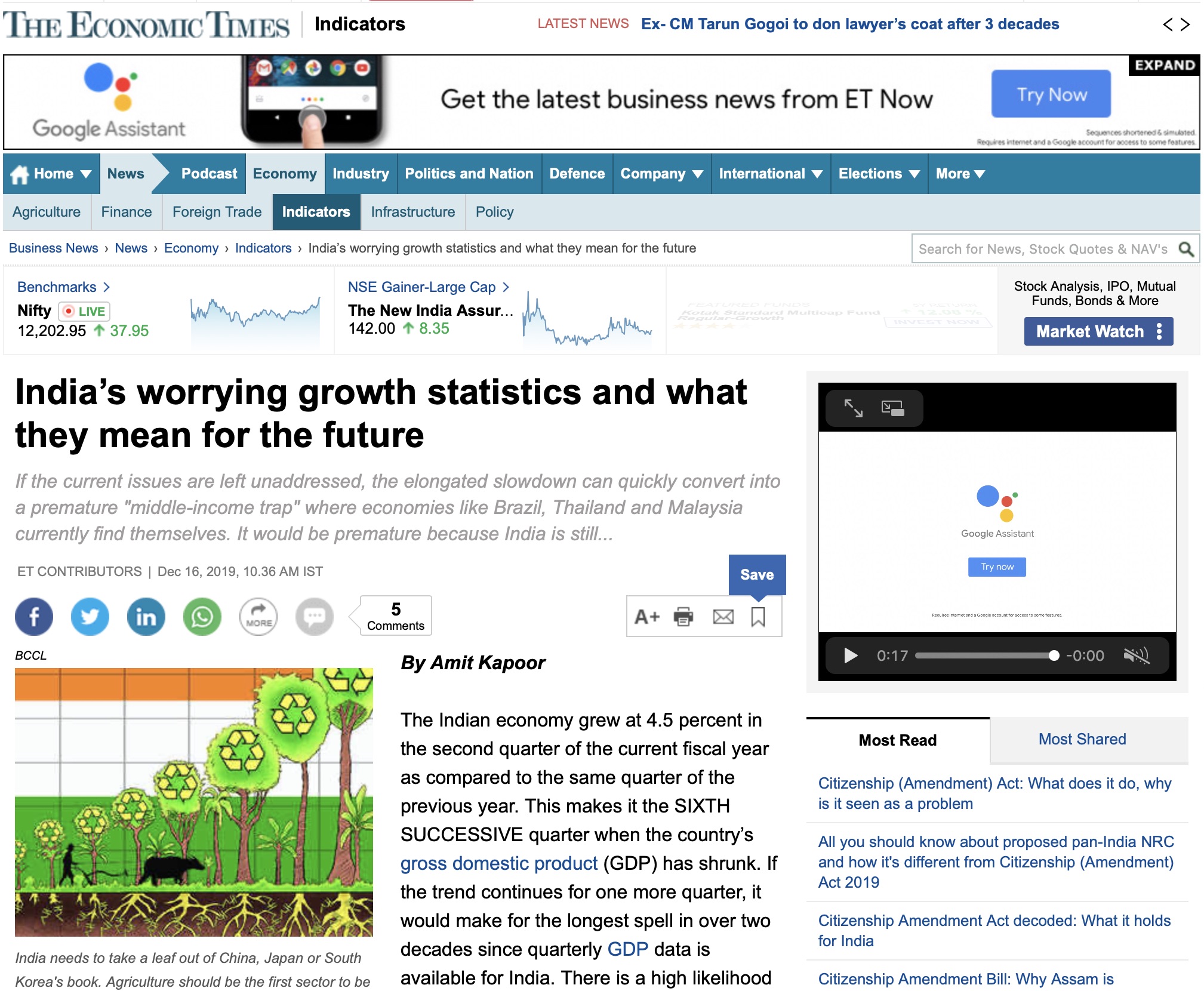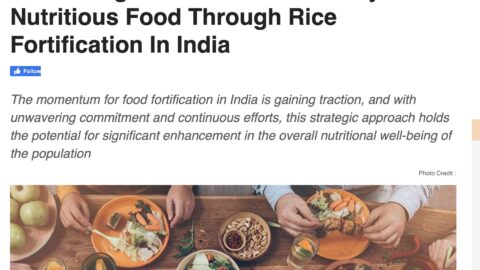Can the UGC’s recent Quality Assurance Strategies Address Challenges in Open Distance Learning Education in India?
Considering the significant role played by the Open and Distance Learning (ODL) in increasing access to higher education in India, the Government of India announced last year to recognize the degrees, diplomas or certificates awarded through the distance mode to be at par with the those obtained through the regular mode of education. ODL has led many people belonging to the disadvantaged group, such as those living in the remote areas, women affected by gender bias and also many working professionals seeking to upgrade their skills according to the changing market conditions, to enroll themselves in institutes of higher learning.
Recognizing the degrees obtained through the ODL mode of education in parity with the conventional system of education, for the purpose of employment, primarily in the public sector undertakings or for pursuing higher education, will aid in increasing enrolments in distance learning programmes and also help in closing the skill gap faced by the country.
In addition to the declaration of degree equivalence of ODL institutions and the regular universities, University Grants Commission (UGC), which is the regulatory authority for the ODL education in India, as a quality assurance measure, derecognized the distance learning programmes which require hands on experience, such as engineering, medicine, dental, pharmacy, nursing, architecture, physiotherapy and other such programmes. Further, for professional programmes such as MBA, MCA, B.Ed., M.Ed., Hotel Management, Travel, and Tourism, recognition is no longer accorded without prior approval of the respective regulatory authorities.
Further, for the private universities, the rules for offering distance education courses have changed; they are no longer allowed to run ODL programmes for which similar programmes are not offered in the regular mode of education in the last 5 years, owing to the lack of experienced faculty in the particular ODL programme offered by the university.
Further, UGC has made mandatory accreditation of National Assessment and Accreditation Council (NAAC) for ODL institutions and other higher education institutions providing the distance learning programmes, as a quality assurance measure for higher learning in India. NAAC, is the national accreditation agency for higher education in India, which evaluates the quality of the education institution in terms of various performance parameters, and based on the assessment assigns a cumulative GPA(CGPA) to it. According to the latest UGC guidelines, the higher education institutions which have a valid accreditation of NAAC of minimum CGPA of 3.26 on a 4-point scale and have completed five years of existence are eligible to apply for providing distance learning programmes.
In order to further complement the ODL system of learning, as well as the regular university education, the government launched a digital program of learning, SWAYAM, by bringing online hundreds of courses taught at the university/college level to the learners from varied backgrounds, and giving them a unique opportunity to expand their knowledge and skills. For a student, the incentive lies in earning credits which could be transferred to the current academic record, and for the working professional the incentive is upskilling at a very low cost.
In order to assure the quality of the content produced and delivered through SWAYAM, the courses have been prepared by specially chosen faculty from across the country and national coordinators have been appointed for different categories of courses for assuring and managing the quality of the courses, AICTE for self -paced and international courses, NPTEL for engineering, UGC for non-technical post-graduation education, CEC for under graduate education, NCERT &NIOS for school education, IGNOU for out of school students, IIMB for management studies and NITTTR for Teacher Training programme.
According to the All India Survey on Higher Education (AISHE), 2017-18, distance enrolment constituted about 11 percent of the total enrolment in higher education in India. Presently, to provide ODL education in India, there is 1 Central Open University (IGNOU), 14 State Open Universities, 1 State Private Open University and 110 Dual Mode universities, which offer education through both regular and distance mode. These universities are mainly concentrated in 6 states of India, with Maharashtra, Delhi, Tamil Nadu, Kerala, West Bengal and Uttar Pradesh enrolling 61.3 percent of distance education students in the country (AISHE, 2017).
Looking at the year-wise trend in the open learning enrolment in India, there has been a decline in enrolment in most of the undergraduate level programmes, except for Masters in Business Administration (MBA), where student enrolments increased by 23 percent over the period 2016-17 to 2017-18 (AISHE, 2017).
While a majority of the students choose the traditional mode of education over the ODL as the mode of study, the ODL has a tremendous potential to reach the disadvantaged section of the society, for whom the higher education in traditional setting is inaccessible. Infact, the ODL education can play an instrumental role in achieving the target Gross Enrolment Ratio of 30 percent in higher education in India by 2020-21.
The recent government initiatives in assuring the quality of ODL education, will aid in overcoming some of the challenges faced by this system, and also possibly result in greater enrolments of students who were earlier disregarding the distance mode of learning due to non-recognition of its degrees/ certificates, or due to quality concerns about the institution providing the same, or the content of the courses provided and delivered. Increasing enrolments in higher education through the ODL mode is one way the country can increase its pool of skilled labor force and lessen the skill gap induced by technology changes.
The article was published with Business Standard, Outlook Indiaand Millennium Poston February 9, 2019.

